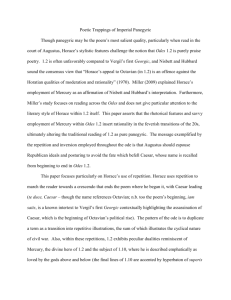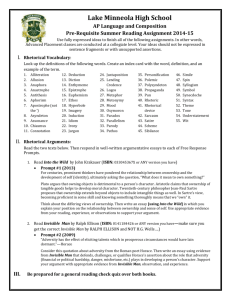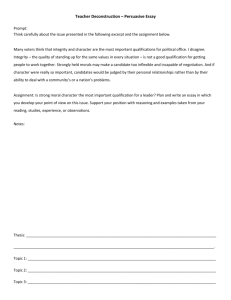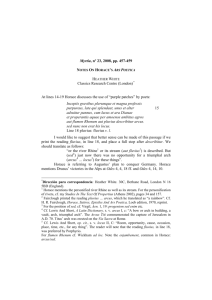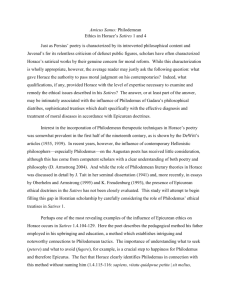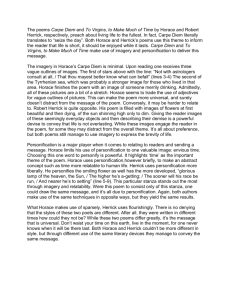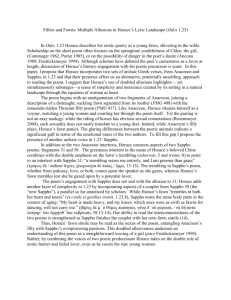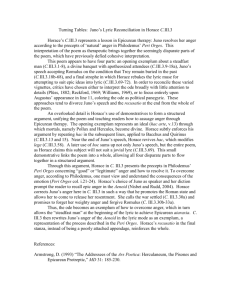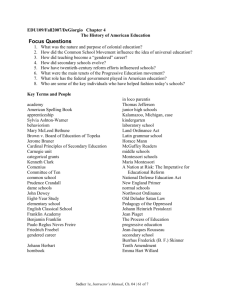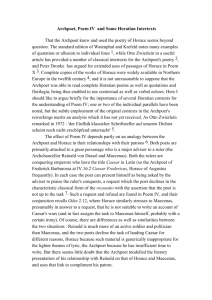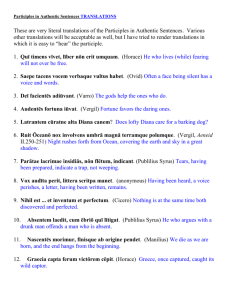Horace_1228767681.doc
advertisement
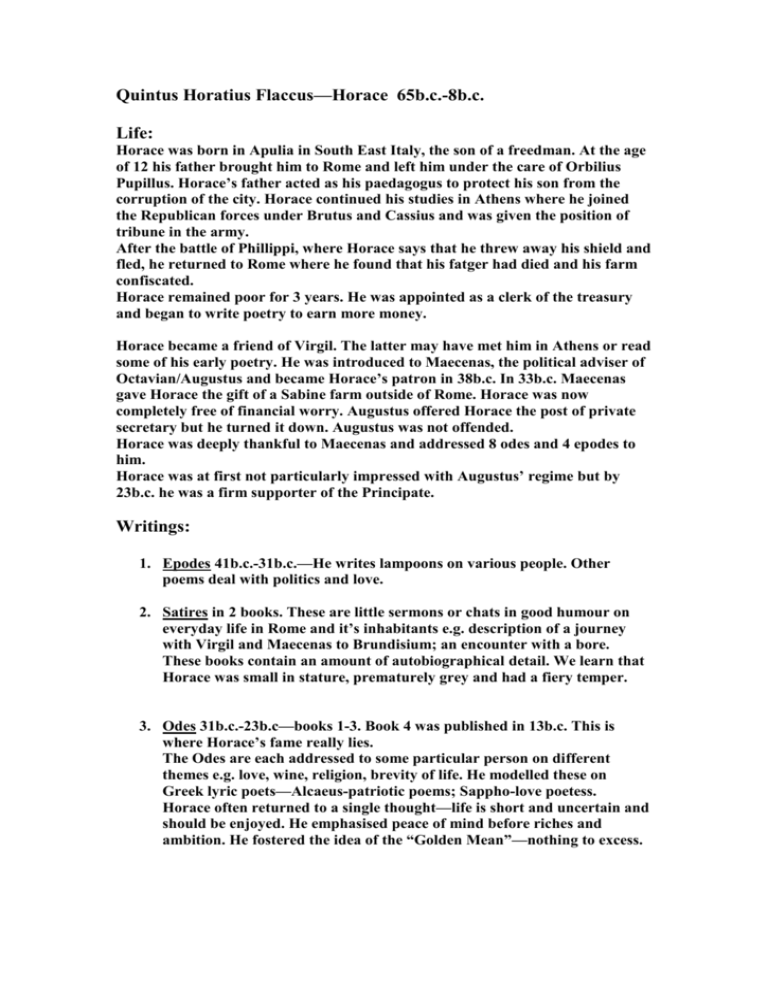
Quintus Horatius Flaccus—Horace 65b.c.-8b.c. Life: Horace was born in Apulia in South East Italy, the son of a freedman. At the age of 12 his father brought him to Rome and left him under the care of Orbilius Pupillus. Horace’s father acted as his paedagogus to protect his son from the corruption of the city. Horace continued his studies in Athens where he joined the Republican forces under Brutus and Cassius and was given the position of tribune in the army. After the battle of Phillippi, where Horace says that he threw away his shield and fled, he returned to Rome where he found that his fatger had died and his farm confiscated. Horace remained poor for 3 years. He was appointed as a clerk of the treasury and began to write poetry to earn more money. Horace became a friend of Virgil. The latter may have met him in Athens or read some of his early poetry. He was introduced to Maecenas, the political adviser of Octavian/Augustus and became Horace’s patron in 38b.c. In 33b.c. Maecenas gave Horace the gift of a Sabine farm outside of Rome. Horace was now completely free of financial worry. Augustus offered Horace the post of private secretary but he turned it down. Augustus was not offended. Horace was deeply thankful to Maecenas and addressed 8 odes and 4 epodes to him. Horace was at first not particularly impressed with Augustus’ regime but by 23b.c. he was a firm supporter of the Principate. Writings: 1. Epodes 41b.c.-31b.c.—He writes lampoons on various people. Other poems deal with politics and love. 2. Satires in 2 books. These are little sermons or chats in good humour on everyday life in Rome and it’s inhabitants e.g. description of a journey with Virgil and Maecenas to Brundisium; an encounter with a bore. These books contain an amount of autobiographical detail. We learn that Horace was small in stature, prematurely grey and had a fiery temper. 3. Odes 31b.c.-23b.c—books 1-3. Book 4 was published in 13b.c. This is where Horace’s fame really lies. The Odes are each addressed to some particular person on different themes e.g. love, wine, religion, brevity of life. He modelled these on Greek lyric poets—Alcaeus-patriotic poems; Sappho-love poetess. Horace often returned to a single thought—life is short and uncertain and should be enjoyed. He emphasised peace of mind before riches and ambition. He fostered the idea of the “Golden Mean”—nothing to excess. The principal qualities of the Odes: 1. Compression of language—he says a lot using a few words. 2. Quotable—carpe diem; nil desperandum—little gems of wisdom which still hold true today. 3. He was the first to adapt Greek songs to Italian metres. The Odes are noted for their painstaking perfection. In 17b.c Horace was asked to compose the Carmen Saeculare—a hymn to Apollo and Diana and sung at games held in their honour. They were normally celebrated once every 100 years. Augustus wanted to put on a show for the people. Horace was chosen even ahead of Virgil. Another work he wrote was Ars Poetica—a letter written to a certain Piso dealing with rules for poetical composition, style diction and metre. Horace had a unique blend of amusing wit, biting satire, moral reflection and common sense.
